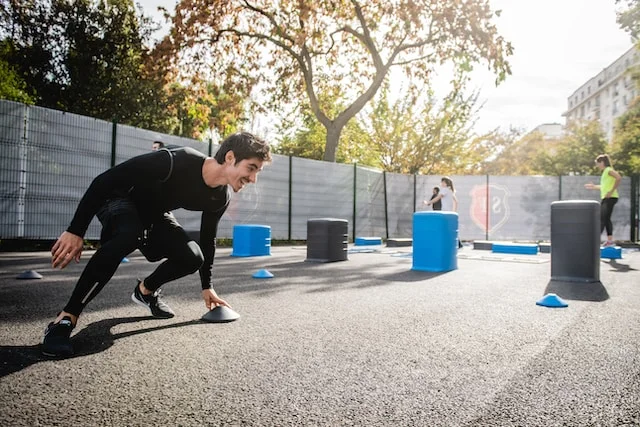Eating after a workout is just as important as the workout itself. Proper post-workout nutrition plays a crucial role in helping your body recover, repair muscles, replenish energy stores, and optimize your fitness gains. In this comprehensive guide, we will delve into the science behind post-workout nutrition, explore what to eat after the gym, and provide practical advice to maximize your recovery and overall fitness goals.
The Science of Post-Workout Nutrition
Understanding the science behind post-workout nutrition is essential for making informed choices about what to eat after the gym. Here are some key principles:
- Muscle Glycogen Depletion: During exercise, your muscles use glycogen (stored carbohydrate) as a primary energy source. Post-workout, your glycogen stores are depleted and need replenishing.
- Muscle Protein Breakdown: Exercise can cause minor damage to muscle fibers. Proper nutrition helps repair and rebuild these fibers, leading to muscle growth and recovery.
- Protein Synthesis: Resistance training stimulates muscle protein synthesis, a process where your body builds new muscle protein. Consuming protein after a workout enhances this process.
- Rehydration: Sweating during exercise leads to fluid loss, and it’s vital to rehydrate to maintain optimal bodily functions.
Macronutrients for Post-Workout Nutrition
To meet your post-workout nutrition needs, focus on the following macronutrients:
1. Carbohydrates
Carbohydrates are essential for replenishing glycogen stores in your muscles and liver. Consuming carbs post-workout helps restore energy levels and aids in recovery. Opt for complex carbohydrates like whole grains, fruits, and vegetables, which provide sustained energy.
2. Protein
Protein is crucial for muscle repair and growth. It provides the amino acids necessary for rebuilding damaged muscle fibers. Sources of high-quality protein include lean meats, poultry, fish, eggs, dairy products, legumes, and plant-based options like tofu and tempeh.
3. Fats
While carbohydrates and protein are the primary focus after a workout, don’t neglect healthy fats. Fats support overall health and can be included in a balanced post-workout meal. Avocado, nuts, seeds, and olive oil are excellent sources of healthy fats.
What to Eat After the Gym
Now that we’ve discussed the importance of macronutrients, let’s explore what to eat after the gym based on your workout goals and timing:
1. Balanced Meal (1-2 Hours Post-Workout)
A balanced meal that includes carbohydrates, protein, and healthy fats is ideal if you have time to sit down for a post-workout meal. Here’s an example:
- Grilled chicken breast or tofu (protein)
- Brown rice or quinoa (carbohydrates)
- Steamed broccoli and a side salad (fiber and vitamins)
- A drizzle of olive oil (healthy fats)
2. Protein Shake or Smoothie (30 Minutes Post-Workout)
If you prefer a quicker option, a protein shake or smoothie can provide essential nutrients in a convenient form. Combine the following ingredients:
- Whey or plant-based protein powder (protein)
- A banana or berries (carbohydrates)
- Greek yogurt or almond milk (protein and hydration)
- Spinach or kale (fiber and vitamins)
- A spoonful of nut butter (healthy fats)
3. Snack (Immediate Post-Workout)
If you can’t have a full meal or shake right away, opt for a quick snack to kickstart recovery:
- Greek yogurt with honey and almonds (protein and carbs)
- Hummus with whole-grain crackers (protein and carbs)
- A turkey or veggie wrap (protein and carbs)
4. Hydration (Throughout)
Don’t forget to rehydrate with water throughout your workout and after. For intense or long workouts, consider a sports drink with electrolytes to replenish lost fluids and minerals.
Meal Timing
Timing matters when it comes to post-workout nutrition:
- Immediate Post-Workout: Consume a source of protein and carbohydrates within 30 minutes to an hour after exercise to kickstart recovery.
- 1-2 Hours Post-Workout: Aim for a balanced meal that includes protein, carbohydrates, and healthy fats to provide sustained nutrition.
Special Considerations
Depending on your fitness goals and dietary preferences, you may have specific post-workout nutrition needs:
- Muscle Building: If your goal is muscle growth, prioritize protein intake and consider adding a post-workout BCAA (branched-chain amino acid) supplement to support protein synthesis.
- Weight Loss: If you’re working out to lose weight, focus on portion control and choose lean protein sources and complex carbohydrates. Avoid high-calorie post-workout snacks.
- Vegan or Vegetarian: Plant-based sources of protein like beans, lentils, tofu, and quinoa can provide the necessary amino acids for muscle recovery.
Conclusion
Proper post-workout nutrition is a critical component of a successful fitness regimen. It supports muscle recovery, replenishes energy stores, and enhances your overall workout experience. By understanding the science of post-workout nutrition and choosing the right combination of carbohydrates, protein, and fats, you can optimize your recovery and make the most of your hard-earned efforts in the gym. Whether you opt for a balanced meal, a protein shake, or a quick snack, prioritize post-workout nutrition to help you reach your fitness goals effectively.






